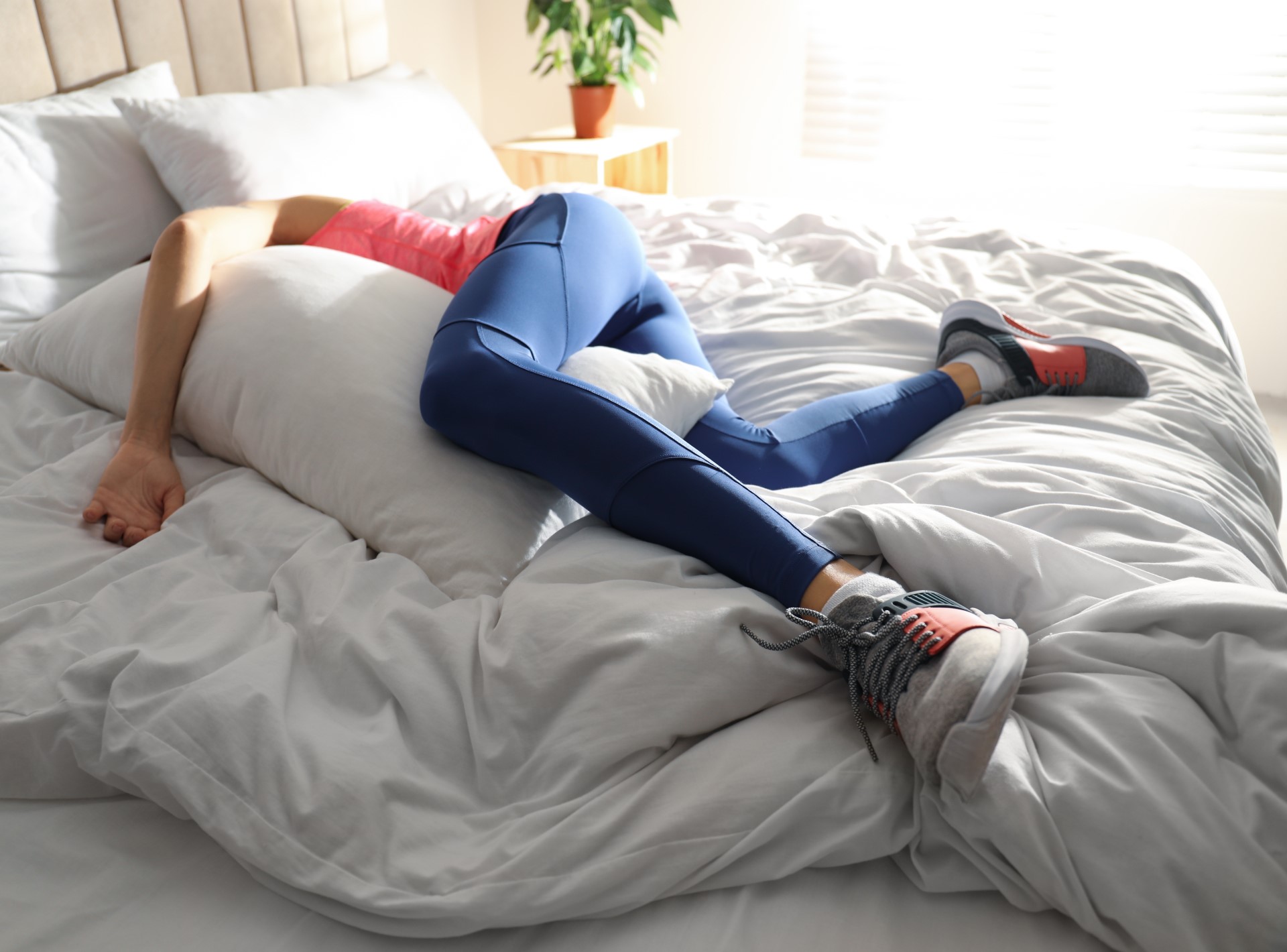A new study led by Flinders University has shown the impact of sports-related concussions on sleep, revealing a surprising discovery.
The results from SA, published in Nature and Science of Sleep, found that participants’ quality of sleep appeared to ‘improve’ during the eight weeks after sustaining a sports-related concussion (SRC), including longer duration sleep, better sleep efficiency, and even longer deep sleep as the recovery progresses.
Flinders University sleep researcher Dr David Stevens, who treats and researches sports-related concussion, said their findings suggest that the role of sleep in recovery should be further explored, including its effect on the other outcomes of concussion such as loss of cognitive function, reduced alertness, and increased depression and anxiety.
“Little is known about sleep after a concussion, despite sleep arguably being the more important process to allow the brain to function optimally,” Dr Stevens said.
“We [originally] hypothesised that sleep during both the acute and subacute phases after an SRC would be impaired compared to normative data.
“However, sleep during both the acute and subacute phases of SRC was characterised by longer and less disrupted sleep when compared to population normative values, and there was also an improvement in sleep, from the acute to subacute phase of SRC.
“These results were not in accordance with our hypothesis.”
The research team examined the changes in sleep that occurred during the ‘acute stage’ of concussion, within seven days of a SRC, and during the ‘sub-acute stage,’ eight weeks later, in comparison with population normative values, using electroencephalography (EEG) to measure sleep stages, length and quality.
The 5,273 adult participants were physically active and referred from a specialised sports and exercise medicine clinic, with candidates excluded if they had existing uncontrolled sleep problems, known neurological issues, or uncontrolled psychological problems.
Results indicated that participants slept better compared to the rest of the population and furthermore, sleep appeared to further improve eight weeks after concussion when compared to sleep immediately after concussion.
“We speculate that longer and less disrupted sleep during both phases of SRC, when compared to normative values, and improvements in sleep from acute to subacute phases of SRC, is an attempt by the brain to minimise and repair the damage resulting from SRC,” he said.
“The significantly increased proportion of Stage N3 sleep during the subacute phase is potentially important.”
Research examining the effect of concussion on sleep is relatively limited, yet previous studies have linked deep sleep with increased neural plasticity and the activation of the glymphatic system, which removes amyloid-β and τ-proteins – both of which are implicated in Chronic Traumatic Encephalopathy (CTE), also associated with repeated traumatic brain injuries.
“What is unclear is why there was an extended onset of REM sleep and Stage N3 sleep during the acute phase, significantly so for REM sleep when compared to normative values,” Dr Stevens said.
“It is possible that the neurochemical cascade that occurs after a concussion such as the influx of calcium into neuronal axons, interferes with sleep-stage initiation.”
However, the researchers noted that as moderate physical activity is enough to improve sleep quality and reduce the burden of sleep disorders, a factor not included in the analysis, they could not discount the potential contribution of playing sports on the improved sleep shown after SRC by participants.
“More research in a larger population is needed to explore this hypothesis and investigate other neurophysiological and neurocognitive measures to examine whether changes in sleep during recovery from concussion results in changes to other aspects of the head trauma,” Dr Stevens said.
“I am not only advocating for improved research in a range of areas in concussion, but also for players, clubs, and organisations to stop treating concussion likes it’s a scratch or a ‘corky,’ but rather a clinical issue that has potential ramifications worse than any dislocation or fracture.”


